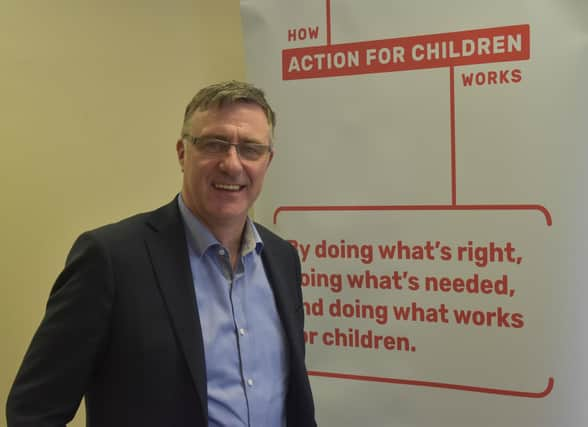Moving On Programme has helped create crucial connections with young people - Paul Carberry


The young males who find themselves in Polmont Prison have been carried there by a current of poverty and inequality and once they are in the justice system they find it hard to get out. Moving On was designed to help them lift themselves out of poverty and access opportunities to realise their potential.
The programme provides a throughcare service for young males aged between 16‐21 who are currently in or have recently been liberated from Polmont. The aim is to help them build their confidence, self‐esteem, and connect them to employment opportunities through our partnerships with local businesses.
Advertisement
Hide AdAdvertisement
Hide AdThere are many barriers in the way of this progress though, barriers that have been put in front of these young males years before they found themselves in Polmont. Common threads of complex needs, exposure to trauma and abuse and experience of mental health issues are woven throughout their backstories. We take a holistic approach in our ongoing work with them to address these issues so they can begin to establish the kind of foundation that has been missing in their lives.
Unfortunately, young men with mental health issues are the least likely to seek professional help and too often are unwilling to open up and ask for help. Thankfully, the Action for Children ‘mentors’ who work with young people have been able to overcome these challenges. They have lived experience of the criminal justice system themselves and this empathy and understanding has been key to forming meaningful relationships.
Our mentors have been instrumental in the success of the programme because they have managed to create these crucial connections with the young people. Between April 2013 and September 2018, 318 young people were referred to Action for Children and 299 (94 per cent) engaged meaningfully with the project.
Many of the young males have never had any kind of positive bond with an adult before and the ties formed with their mentors prior to them leaving Polmont have been instrumental in transforming their lives.
This has yielded incredible results which highlight the success of this approach and the need for more investment into this kind of work. The return to prison rates have remained consistently low and our 2020/21 review found 83 per cent of young people on the Moving On Programme did not return to prison. To put that into context, the national average of young people returning to prison within a year is 47 per cent. Maintaining these excellent results in the face of the multitude of challenges the pandemic threw up is a testament to the dedication, innovation and creativity of the staff running the service.
The ultimate end goal of Moving On is to help the young people find a ‘positive destination’ such as employment, training or a college course. We’ve achieved this through our SQA accredited employability courses and partnerships with a range of local businesses spanning catering, mechanics, health and fitness and construction. Our ‘Yes Chef!’ programme has been running since 2014 and, of the 22 young men who have come through the project, 21 have gone on to gain employment working in kitchens.
We recently began our ‘Gee Us a Buzz’ partnership with The Rainbow Room who helped delivered an eight-week programme, that included mental health first aid training, and ended with the group of participants attaining their level 1 qualification in barbering. Moving On also supports young people who want to become mentors themselves with volunteering opportunities and support towards their SVQ level 2 in Health and Social Care.
I am immensely proud of the progress Moving On has made and I hope it will inspire change around custodial sentences for young people and prompt more investment into services that help them overcome the difficult starts they have had in life. The success of this approach is underpinned by the humanity and understanding shown by the mentors and management at all levels and more investment in this area has the potential to drastically improve and transform many lives.
Paul Carberry, Action for Children Director for Scotland
Comments
Want to join the conversation? Please or to comment on this article.